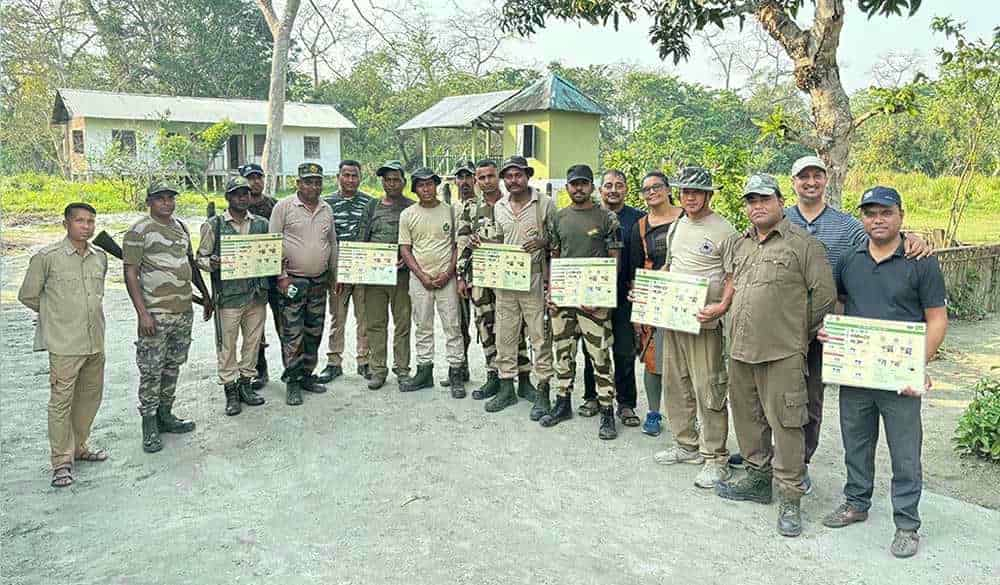Kaziranga boosts anti-poaching camps with eco-friendly stoves on International Day of Forests

On the occasion of International Day of Forests, the Kaziranga National Park and Tiger Reserve (KNPTR) reaffirmed its commitment to both conservation and improving the well-being of frontline forest personnel. Home to over 80% of India’s greater one-horned rhinoceros population, Kaziranga has become a global model for wildlife protection, particularly through its Anti-Poaching Camps (APCs).
The Kaziranga model of conservation, which focuses on strategically placed 233 anti-poaching camps (one for every 5.82 sq km), has been instrumental in reducing poaching incidents over the years. Each APC is manned by 4-8 forest personnel, who conduct round-the-clock patrols to deter poachers and intruders. However, many of these camps are remote, difficult to access, and especially vulnerable during the monsoon floods.
Speaking on the occasion, KNPTR Field Director Sonali Ghosh highlighted a key challenge faced by forest personnel—cooking in extreme conditions.
“Due to remoteness and inaccessibility, most APCs rely on traditional firewood stoves, which have several drawbacks: time-consuming firewood collection, high storage needs, inefficient burning, and serious health hazards due to smoke inhalation,” Ghosh explained.
While efforts are being made to improve LPG supply to these camps, firewood remains the primary fuel source due to logistical constraints. To tackle this, Kaziranga has introduced industry-manufactured, efficient wood stoves, which offer a practical and sustainable solution for frontline forest workers.
Supported by the Wildlife Trust of India’s Rapid Action Project, the park authorities have distributed 47 improved cook stoves across 45 anti-poaching camps and two community kitchens.

The newly installed stoves include two-pot stoves for 37 APCs, single-pot stoves for 8 APCs, two 50-litre capacity stoves for the Assam Forest Battalion and the Elephant Camp and designed to cook for up to 100 people.
The improved cook stoves are expected to reduce firewood consumption by up to 50%, lower smoke emissions by up to 80%, cut down cooking time and minimize firewood storage requirements.
Between March 16 and 21, 2025, training and demo-cooking sessions were conducted at each of the nine forest ranges, ensuring APC teams were familiar with the new technology. A post-usage survey will be conducted one month after installation to assess effectiveness and explore a larger-scale intervention in the next phase.
By taking steps to enhance living conditions for forest frontline workers, Kaziranga is not only reinforcing its anti-poaching efforts but also promoting sustainability and well-being, ensuring that those protecting the forests can do so with greater comfort and efficiency.


Leave a Reply